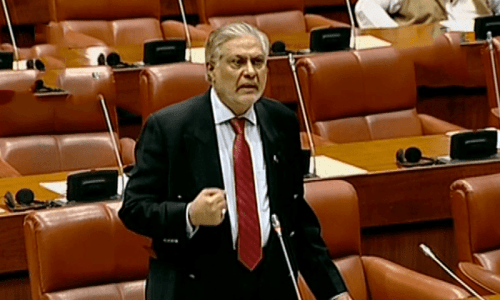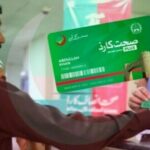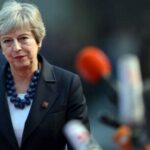ISLAMABAD: Ishaq Dar, the retiring leader of the Senate, said on Friday that the opposition should work with the government to help steer the nation out of challenges, citing charters of democracy and economics as the imperative of the hour.
“The enemy country would benefit if we continued to fight each other,” he said.
He made the observation that leg-pulling begins just before Pakistani players take off, which results in a slump.
“Let’s deliberately collaborate to ensure that this doesn’t occur once more,” he said.
Mr. Dar stated that the creation of a truth and reconciliation commission and constitutional court should be the final items on the unfinished agenda of the charter of democracy.
Mr. Dar, who declared himself to be the greatest proponent of reconciliation, stated that Prime Minister Shehbaz Sharif had also discussed the reconciliation and the economy charter. He advocated for the creation of an economic consensus that must not be veered from. Mr. Dar emphasized that overcoming economic obstacles takes time—it may take years—and that no one party can do it alone.
Mian Raza Rabbani, a former Senate chairman, spoke immediately after Mr. Dar and urged all political parties to engage in a national conversation in order to rid the nation of hybrid politics and international financial imperialism. He said that the Senate’s committee of the whole was adequate and that no additional forum was needed for this.
Senator Rabbani stated that the committee could carry out this task just as well, negating the need for a truth and reconciliation commission.
The National Party’s Senator Tahir Bizenjo voiced doubts about the political function of defense institutions and threatened to criticize them if they become involved in political matters.
Mr. Bizenjo questioned the validity of general surveys, claiming that the results were pre-prepared for the election. He said that unless the Constitution was completely implemented, the nation will continue to suffer crises.
During his address, PML-N senator Mushahid Hussain Sayed declared that Imran Khan, the founder of the PTI, was a political prisoner who needed to be freed.
“Since February 8, a new chapter has begun, and we require a healing touch,” he said. Additionally, he suggested a general amnesty, questioning why it could not be implemented since negotiations with the TTP, which was in charge of killing defenseless children, could take place in Kabul. Additionally, he stated that PTI need to be granted reserved seats.
The opinion of Senator Muzaffar Hussain Shah was that the parliament’s upper house needed further authority. He claimed that the Senate would turn into little more than a debate club if it didn’t have funding.
The fact that PTI Senator Ijaz Chaudhry received production orders was a significant high point of the day. Senator Ijaz Ahmad Chaudhry was issued a production order by Deputy Chairman of the Senate Mirza Khan Afridi, allowing him to exercise his right to vote in today’s (Saturday) presidential elections.
PTI Senator Ali Zafar had presented a motion in the upper house asking for production orders for Senator Chaudhry, which was signed by the opposition and treasury benches.
According to him, the Senate’s Rule 84 gives the chairman the authority to call a member who is being held for a meeting of the Senate.
In order for Senator Chaudhry to exercise his right to vote in the March 9 presidential election, he argued, he must be present. Senator Chaudhry’s health was reported to the Senate by Senator Ali Zafar, who said that the senator has problems with his liver and uric acid and is medically unfit.
He insisted on a comprehensive medical examination and the creation of a medical board at PIMS.
A motion to formally recognize Zulfikar Ali Bhutto as a “Shaheed” and to grant Nishan-i-Zulfikar to political activists and workers who have battled and given their lives in defense of democracy was also approved by the parliament.








